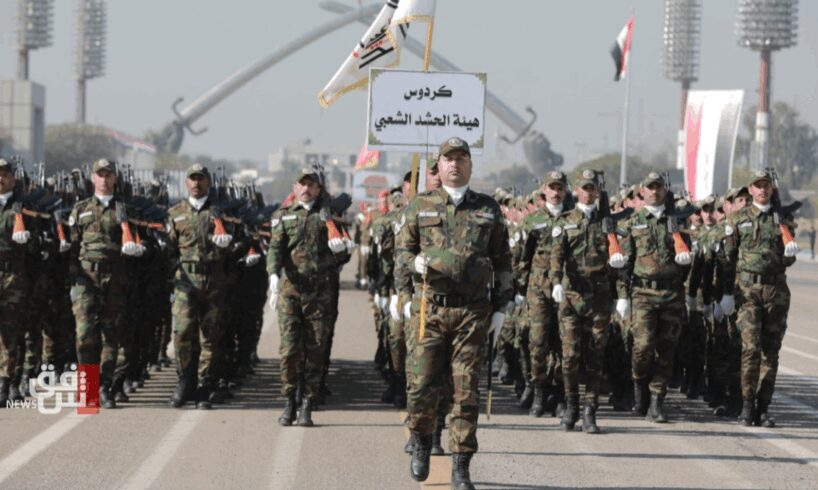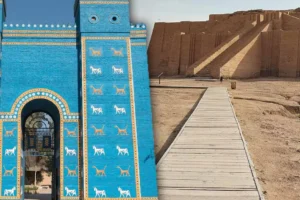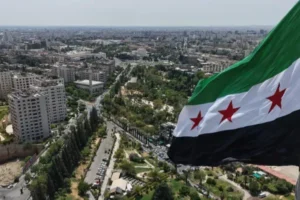
Shafaq News
As the Iraqi Parliament advances legislation to formalize the Popular
Mobilization Forces (PMF) as an independent security institution, tensions with
the United States are escalating. Washington warns the bill could entrench
Iranian influence and undermine Iraqi sovereignty, while Iraqi officials insist
the move is a long-overdue recognition of a key component of the national
defense structure.
The proposed law, known informally as the amended PMF Authority Law, is
being debated amid a wider struggle over Iraq’s security architecture and
regional alignments. US officials view the legislation as a potential shift in
the balance of power within Iraq’s armed forces, one that may prioritize
loyalty to Tehran-aligned factions over the Iraqi state.
“Legislating this type of law will entrench Iranian influence and
terrorist armed groups that undermine Iraq’s sovereignty,” US Secretary of
State Marc Rubio reportedly told Prime Minister Mohammed Shia al-Sudani in a
phone call last Wednesday, according to State Department spokesperson Tammy
Bruce.
In response, al-Sudani defended the legislation, describing it as part
of a broader security reform initiative passed by parliament. He emphasized
that the PMF remains under the authority of the commander-in-chief and operates
as an official security formation alongside Iraq’s military and intelligence
institutions.
What the New PMF Law Proposes
The legislation—now in its second reading in parliament—would repeal the
2016 law and reconstitute the PMF as a permanent, autonomous military body.
Key provisions include:
-Granting the PMF financial and administrative independence.
-Formalizing it alongside institutions like the National Intelligence
and National Security Services.
-Authorizing new formations under the PMF umbrella.
-Giving the PMF commission chief broad authority to implement
restructuring and development.
According to the Prime Minister’s office, the draft law aims to improve
institutional cohesion and extend benefits to families of fallen fighters.
Iraqi Lawmakers Defend the PMF
Iraqi lawmakers have pushed back against US objections, asserting that
the PMF is a state-aligned institution.
“The Popular Mobilization Forces are an Iraqi security institution that
receives salaries from the government and takes orders from the
Commander-in-Chief, just like other security agencies,” said Ali Ni’ma
al-Bandawi, member of the parliamentary Security and Defense Committee, in
comments to Shafaq News.
Al-Bandawi emphasized the PMF’s origin following Ayatollah Ali
al-Sistani’s 2014 fatwa to defend the country against ISIS, calling it a
“sacred ideological force.” He said the law would enhance organizational
structure and improve fighters’ welfare, not deepen foreign ties.
“American and other foreign interference in drafting laws for the Iraqi
Council of Representatives is unacceptable.”
Al-Bandawi also criticized the withdrawal of some parliamentary blocs
during the July 16 session, calling it “a misguided step,” and reiterated that
the Coordination Framework and State Administration Coalition hold enough votes
to pass the law without consensus but prefer to preserve political partnership.
Divisions Inside Parliament
Speaker Mahmoud al-Mashhadani, in a recent televised interview, revealed
that the US had sent messages to Iraqi political leaders expressing support for
integrating the PMF—not expanding its autonomy.
He warned that the draft law lacked clarity regarding PMF roles and
authorities, making it difficult to implement effectively.
This prompted backlash from MPs, who accused him of undermining national
consensus and began collecting signatures to demand his removal.
The law passed its second reading during the July 16 parliamentary
session, chaired by First Deputy Speaker Mohsen al-Mandalawi, with 172 out of
329 lawmakers in attendance. Some
Kurdish and Sunni MPs staged a walkout in protest.
Expert Warnings of Strategic Fallout
Western analysts view the legislation as a turning point.
“The law appears to institutionalize a military structure that is not
fully loyal to the Iraqi government,” said Thomas Warrick, senior fellow at the
Atlantic Council and former US official at the Department of Homeland Security.
“The United States would prefer to see PMF members integrated into
regular army units rather than maintaining autonomous formations.”
Warrick acknowledged that some of the draft law’s provisions are
administrative in nature, but argued that others “cause deep concern,”
particularly regarding command chains and foreign influence.
He emphasized that the US seeks a unified national military under
elected constitutional leaders and remains wary of past cases where PMF
leadership showed stronger loyalty to foreign actors than to Iraq’s government.
Ahmed Al-Yasiri, head of the Arab-Australian Center for Strategic
Studies, echoed those concerns in remarks to Shafaq News, describing the PMF as
a “political institution” tied to Iranian regional strategy.
He cited the US strike on PMF leader Abu Mahdi al-Muhandis and Iranian
General Qassem Soleimani in 2020 as a reflection of Washington’s view that the
PMF threatened the US-designed post-2003 Iraqi security order.
“This law may grant legal cover to groups managed by the Iranian
Revolutionary Guard in Iraq,” Al-Yasiri said, warning that passing the bill
could severely strain US–Iraq relations and jeopardize American investment and
security cooperation, especially in northern regions like Duhok and Erbil,
which have seen recent drone attacks blamed on Iran-linked armed forces.
He added that the Al-Sudani government may be seeking to end the current
legislative term with a “containment measure” aimed at stabilizing internal
dynamics—but risks alienating international partners.
Alternative Perspective: A Shield of Sovereignty
Sabah al-Akili, a Baghdad-based political commentator, described US
opposition as “a blatant violation of Iraq’s sovereignty,” accusing Washington
of attempting to dismantle regional power structures that challenge Israeli and
American interests.
“Any politician who abstains from supporting the PMF law is aligning
with foreign agendas,” he told Shafaq News, arguing that neutralizing the PMF
would expose Iraq to destabilization and regional fragmentation.
He pointed to developments in Syria’s Suwayda region and Lebanon as part
of what he described as a wider campaign to redraw Middle Eastern borders
through proxy manipulation and disarmament efforts targeting anti-Western
forces.
What Comes Next?
If passed in its current form, the PMF law would deepen the divide
between Iraq’s Shiite-dominated political forces and US regional interests. It
could trigger renewed scrutiny of US aid programs and military cooperation,
especially if American bases or partners in Iraq become targets of groups
shielded by the new legal framework.
With Kurdistan Region factions already expressing concern, and Sunni
parties signaling defection from the legislative process, the law could also
reawaken sectarian and federalist tensions.
At the same time, proponents argue that formalizing the PMF is essential
for preserving national unity—and that sidelining it could invite greater chaos
and foreign intervention.
Written and edited by Shafaq News staff.





